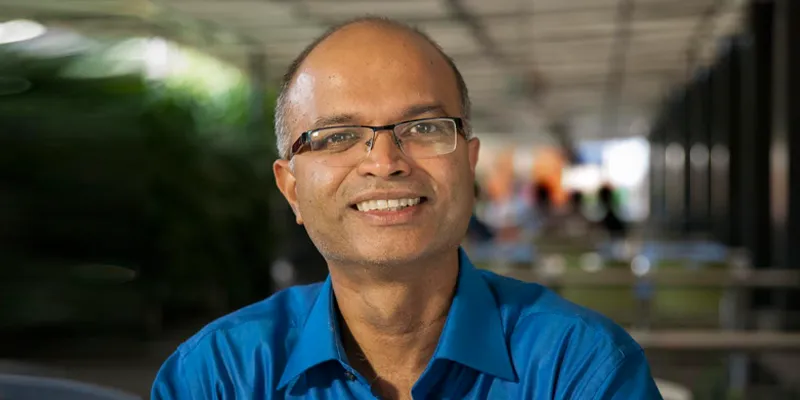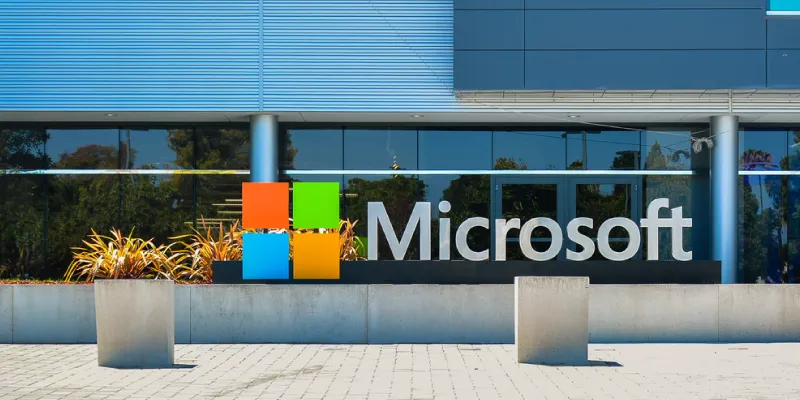We have been successful beyond our wildest imagination - Microsoft Research India head
Microsoft Research India Lab, which launched its deep dive activity in Bengaluru in 2005, has since made long strides in the country by nurturing talent, creating healthcare solutions, and has contributed in the area of computer science.
Given the external constraints the lab faced when it started operations, Sriram Rajamani, Managing Director, Microsoft Research India Lab, told YourStory its achievements have exceeded his wildest imagination.
Edited excerpts from an interview.

YourStory: How would you describe the journey of Microsoft Research (MSR) in India since 2005?
Sriram Rajamani: When we started Microsoft Research, the question and dream for us was to see whether we can build a world-class computer science lab in India.
I think we have been successful beyond our wildest imagination. There were some challenges we envisioned when we started. We always credit India with strong under-graduate talent, and most of them go abroad and do their PhDs. The number of Computer Science PhDs we were producing in India around the time we started was only 35 per year.
It was clear to us that in order to build that kind of lab, we need to actually get PhDs come from abroad, and live in India. Is that going to be possible? On the other hand, it is very difficult for Indian academics to travel abroad as our government policies are not actually very permissive. Given all these constraints present in the eco-system, the biggest question was - is it possible to actually build a lab?
However, we have succeeded beyond our imagination. What surprised us is that a lot of people of Indian origin and non-Indian origin were actually willing to relocate from US or Europe to do research here. That has been a positive experience for us.
Over time, we were able to build a brand. We always wanted to maintain something of high quality, and so we decided to hire very slowly. We hired very good people over time. The other reason why people come to us is if you already have a small team, and the research papers are published in conferences, people know you for the work you have done, and then others will follow.
We have also partnered with India research institutions, co-advised PhD students, and worked with the ecosystem. When I came here, I had a particular perception about how successful we would be. But I think we have been more successful than what I had imagined.
YS: What is the focus areas of research for MSR India?
SR: We have moved around. When we started, we had some areas that we thought we would focus on, and had some intuition for other things. India is uniquely positioned. For example, it is very strong in computer science theory, which is one of the areas we started with.
We started a research area called technologies for the emerging markets, which studies the impact of technology in the socio-economic development of a society. India is really a good test-bed for such technologies, but over time, we as a management do not decide the areas, and these are decided by people who are here. The lab has amorphously evolved to four main research areas – Theory and algorithms, Machine Learning and Artificial Intelligence, and systems and technology for emerging markets. Each of them is now very vibrant.
YS: Does the lab work on any India-specific research?
SR: In a lab like ours, we work on problems inspired by India, but do not restrict ourselves to the Indian market.
For example, if you look at our Machine Learning research, it may be inspired by languages, but it is applicable in many parts of the world. Many times, even though we are inspired by India, the results are applicable worldwide.
Even 99dots project (a technology-enabled project focused on monitoring medication for TB patients), though inspired by the difficulties faced by these individuals, is now being deployed in Myanmar, and there is also interest in Africa to deploy this solution.
Secondly, look at our mathematical and scientific inventions. For example, we had Nikhil Srivastava in our lab, who actually solved an open problem for 50 years in mathematics, and he won the Polya prize, which is an international achievement. We work on data security, privacy, and these are applicable throughout the world. Our work in areas such as systems or mathematics is applicable globally. The idea is not to do research for India, but be inspired by the country.
YS: How multi-disciplinary is MSR in India?
SR: We are already very inter-disciplinary. In our lab, we have computer scientists, mathematicians, social scientists, ethnographers, and economists. So, already, we are quite inter-disciplinary. We have people who do design. One needs to understand that the field of computer science research has become very inter-disciplinary today.

YS: How do you see the talent pool in India?
SR: The talent pool has significantly improved. Let me provide few statistics. The number of PhDs that graduate every year in the field of computer science has moved into several hundred. I don’t think Microsoft Research should take the full credit for it, but we really contributed to the eco-system.
Also, institutes like the IITs and IISc now have more faculty. Investment in the academic system has actually gone up. We have a research fellow programme, which is for people who have done masters or bachelors. They come and spend a year or two with us, and then go for higher studies.
When we started, there was admission of four or five people. But this year, we have 40 research fellows from the top institutions with more than 1,000 applications. This should explain the scale we have achieved. People who have finished the programme have gone overseas for their PhDs. Some of them have come back to India. The people we have generated are now leaders all over the world. We had an impact over time.
YS: What is the future roadmap of MSR in India?
SR: At Microsoft Research, we may work on different areas - like the current focus on Artificial Intelligence. A few years ago, security was the main goal. I think the areas will change, but our principles and mission have never changed. The three main objectives have been to push for the state-of-the-art, publish research papers and be there for the future of the company. The main objective of Microsoft Research is to look into the future. That mission has never really changed for us. We might work in different areas tomorrow, but the principles will not change.







